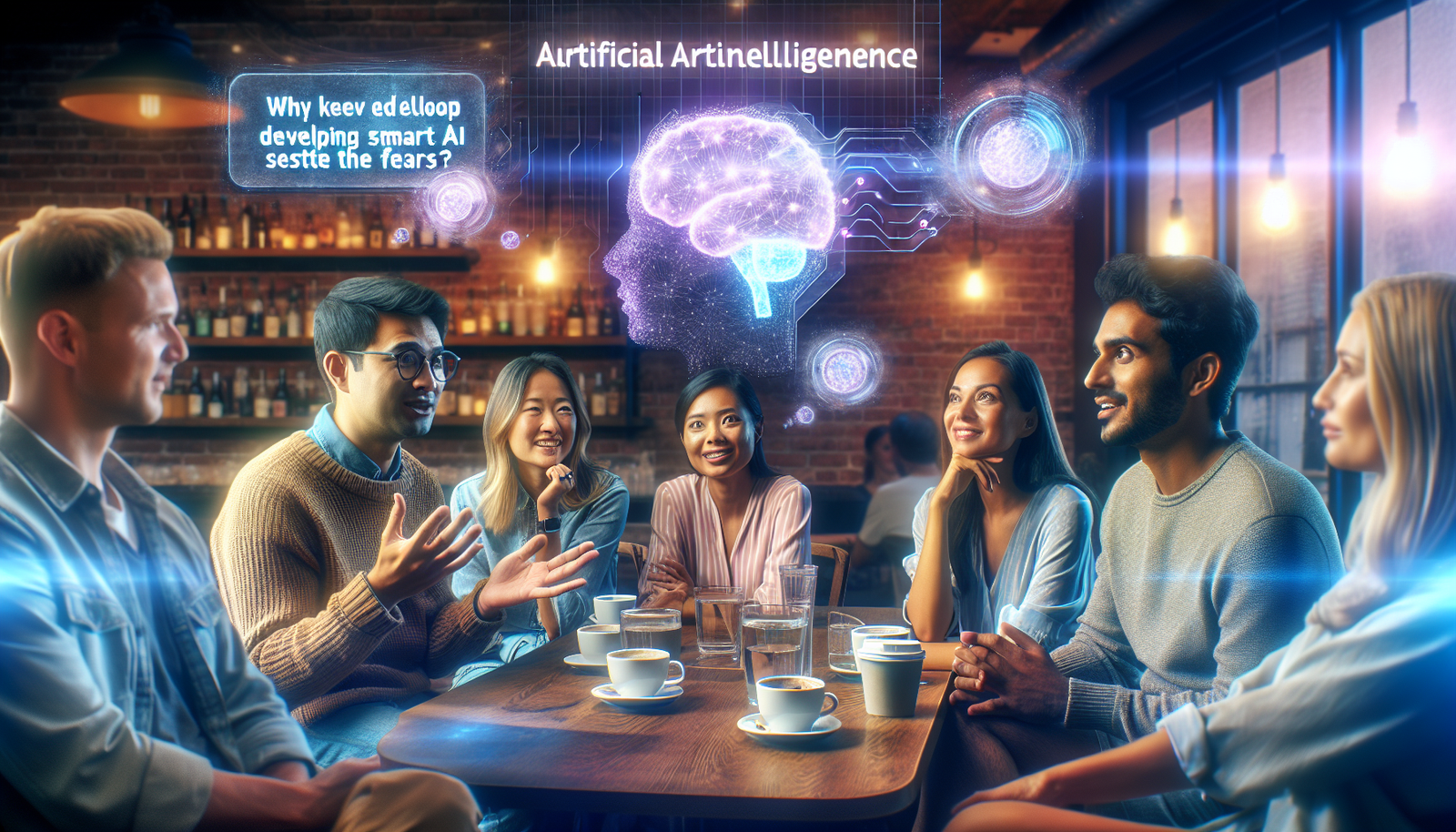The development of a superior artificial intelligence raises growing concerns. The collective anxiety surrounding this technology brings forth fundamental questions about our future. Why persist on this path if the specter of technological domination haunts our minds?
The societal impact of AI is emerging at a crossroads, oscillating between progress and excesses. The economic repercussions of this race for innovation could deeply transform the job market and our daily lives. In light of these major challenges, it becomes imperative to question the motivations driving us to advance down this treacherous path.
The fears surrounding intelligent AI
The debate around artificial intelligence (AI) is becoming unavoidable as technology progresses. The statements of the famous Professor Geoffrey Hinton, often referred to as the “father of AI,” raise serious concerns. According to Hinton, a future where AIs surpass human intelligence is inevitable and can lead to disastrous consequences for humanity. His assertion raises an essential question: why continue to develop artificial intelligences if they are perceived as a threat to our existence?
The double-edged sword of innovation
Each technological advancement involves risks, but also potential benefits. AI has the ability to significantly enhance various sectors, including medicine, process automation, and many other vital areas. The possibility of optimizing medical research, for instance, offers promising prospects for early diagnoses and innovative treatments.
The undeniable benefits of AI
Technologies related to AI offer transformational potential in fields such as health, where advanced algorithms enable the detection of diseases through data analysis. AI systems can process colossal volumes of information in record time, facilitating informed decisions in critical situations.
An alarming economic domination
The fears extend beyond individual impacts; the domination exerted by certain companies, notably the GAFAM, raises ethical questions. These technological giants exploit AI to strengthen their grip on crucial markets, thus increasing the risk of economic dependency and social imbalances. Strict regulation becomes necessary to prevent such excesses.
Poster of anxiety: “AI-anxiety”
The phenomenon of “AI-anxiety” reflects the pervasive fears surrounding this technology. Concerns about job losses, biases in algorithms, and privacy violations contribute to widespread distrust. Recent discussions around the need to regulate AI highlight a willingness to frame these technologies while continuing to develop them.
Regulations in the face of fear
Governments and institutions are beginning to consider the establishment of specific regulations to govern the use of AI. The creation of ethical standards could alleviate concerns and establish a climate of trust around innovation. These measures aim not only to mitigate risks but also to promote responsible development of AI.
The future of AI: the necessity of collective reflection
The progression of AI requires a collective reflection on its societal consequences. Debates around this technology must include diverse voices, ranging from ethics experts to professionals from various sectors. This plurality of perspectives is essential for navigating a constantly evolving technological landscape.
Ambiguous conclusion on the future
Announcing the future of AI remains a complex task. The idea of a technology capable of replacing or surpassing human intelligence generates legitimate anxieties. However, the potential benefits of AI, when managed responsibly, could outweigh these fears. Collective vigilance and open dialogue among various stakeholders are essential to balance innovation and responsibility.
Frequently asked questions about the development of intelligent AI
Why should we continue to develop artificial intelligence despite the concerns it raises?
The development of artificial intelligence offers unprecedented opportunities to improve efficiency, solve complex problems, and optimize various sectors such as health, education, and industry. The benefits are considerable, including the automation of tasks, the analysis of large amounts of data, and the enhancement of personalized services.
What measures are being taken to minimize the risks associated with intelligent AI?
Initiatives are underway to establish regulations and safety protocols, including ethical standards to guide AI designers. Expert committees are also working to develop strategies to address concerns about privacy, biases, and accountability.
How could intelligent AI have a positive impact on society?
Artificial intelligence can help address urgent societal problems, such as early medical diagnostics, combating climate change, and improving transportation systems. Its deployment allows complex issues to be tackled by combining various data and identifying trends that humans may not perceive.
How can AI be used responsibly despite its potential dangers?
Responsible use of AI involves the commitment of companies and researchers to apply ethical principles, such as transparency and fairness. Ongoing training and awareness of users regarding the effects of AI, as well as integrating feedback from stakeholders, are crucial.
What are the main challenges to overcome for a secure development of intelligent AI?
Challenges include managing biases in algorithms, protecting personal data, and establishing appropriate legal frameworks to regulate its use. It is crucial to address these issues to ensure that AI benefits all of society and does not exacerbate existing inequalities.
Are the fears surrounding AI justified?
Although many concerns, such as job loss, algorithmic discrimination, and security issues, are legitimate, it is essential to address them constructively. By opening the dialogue and involving various actors in the development of AI, we can develop solutions that mitigate these fears while maximizing benefits.






